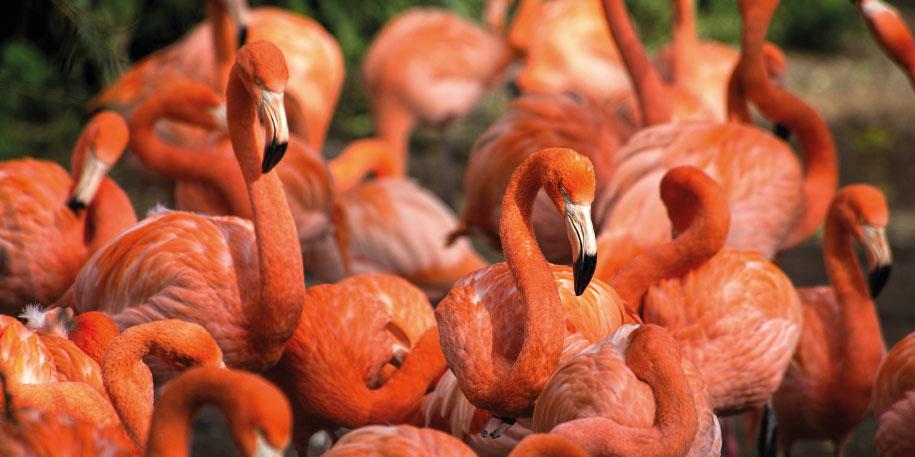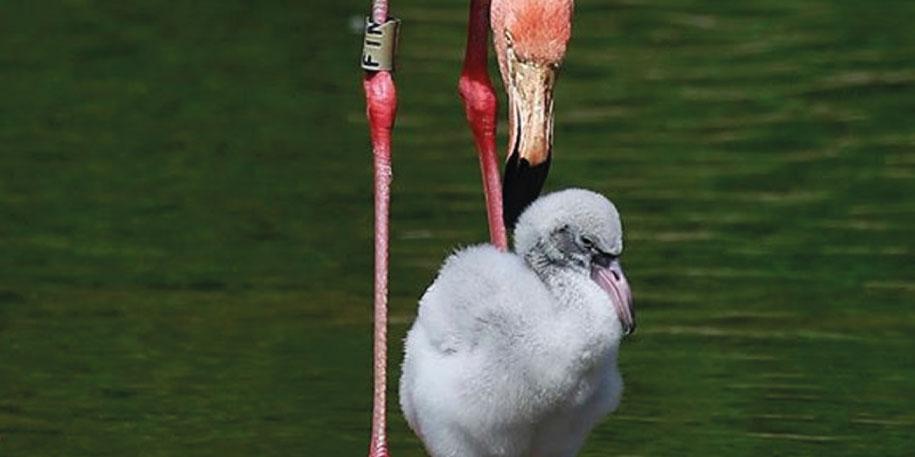Hurry! Renew today and save 20%!
Fluffy flamingo marks feathery first for our flock

There’s been a flurry of feathers as we've celebrated a fantastic ‘first’ in our bird department.

A fluffy little flamingo chick has been parent reared for the first time in the zoo’s 48-year history after decades of hand rearing success.
Keepers have traditionally removed eggs from the flamingo nests and hand-reared the chicks in the bird nursery to stop them being stolen by seagulls.
This year, the team formulated a plan to remove the eggs and replace them with porcelain versions for the birds to sit on.
The incubator eggs were monitored up to the point of hatching and then placed carefully back in the nest to enable the parents and chick to bond on hatching.
Flamingos are monogamous creatures that mate for life and long-term couple Suc and Fin have shared the responsibility of successfully rearing the chick who is now five weeks old.
The next step will be to determine the gender of the youngster, which is done by sending a few of its feathers to Cornwall for DNA testing.
Luke Forster, Head of Birds, said: “We are absolutely delighted that our plan to achieve successful parent rearing in our flock of flamingos worked so well and it is wonderful to see the chick out and about with his or her mum and dad.
“The parents of this particular chick are both more than 25 years old and this particular species can live up to 50 or even older.
“We now have 35 Caribbean flamingos and are hoping to bring more in from other institutions before the end of the year.
“It has certainly been a busy year here in our bird department as we have also hatched a Magellanic penguin, five Blacksmith Plovers, two Eastern White pelicans, eight Spoonbill chicks, three Java sparrows, and a Mount Omei babbler; with even more eggs in nests across the zoo.
“We are still the only zoo in the UK to ever breed the Eastern White Pelican and have a really well-established group that is a firm favourite amongst visitors.
“It’s great to be sharing such good news during these uncertain times. The zoo has been through a year like no other and it is wonderful to be getting back to some kind of normality and introducing visitors to our many new feathered friends.”